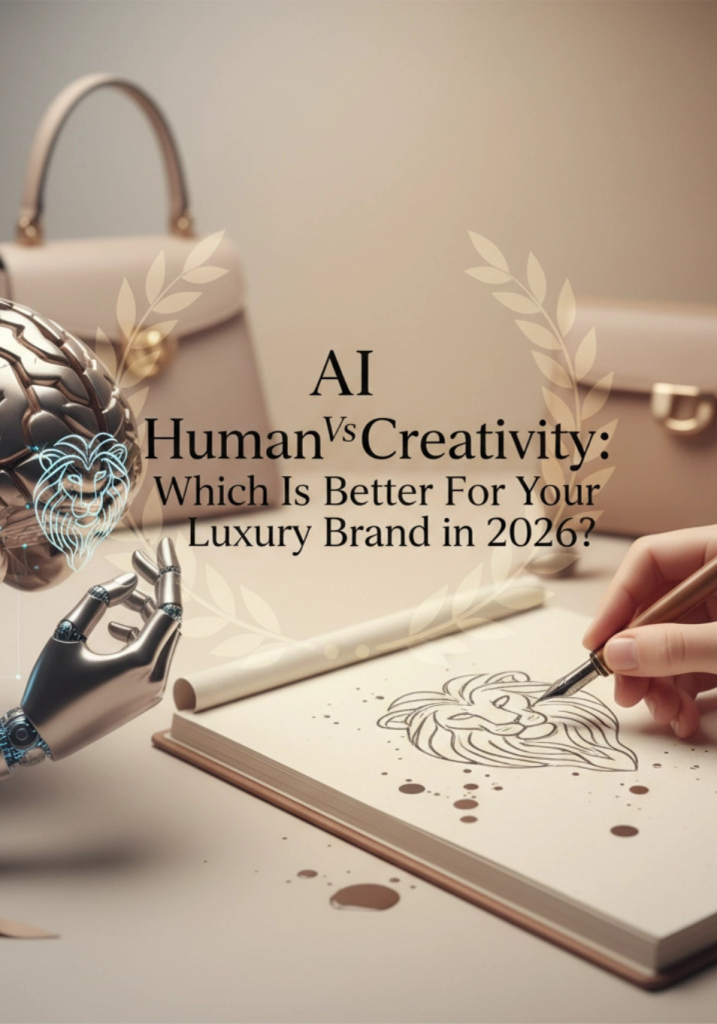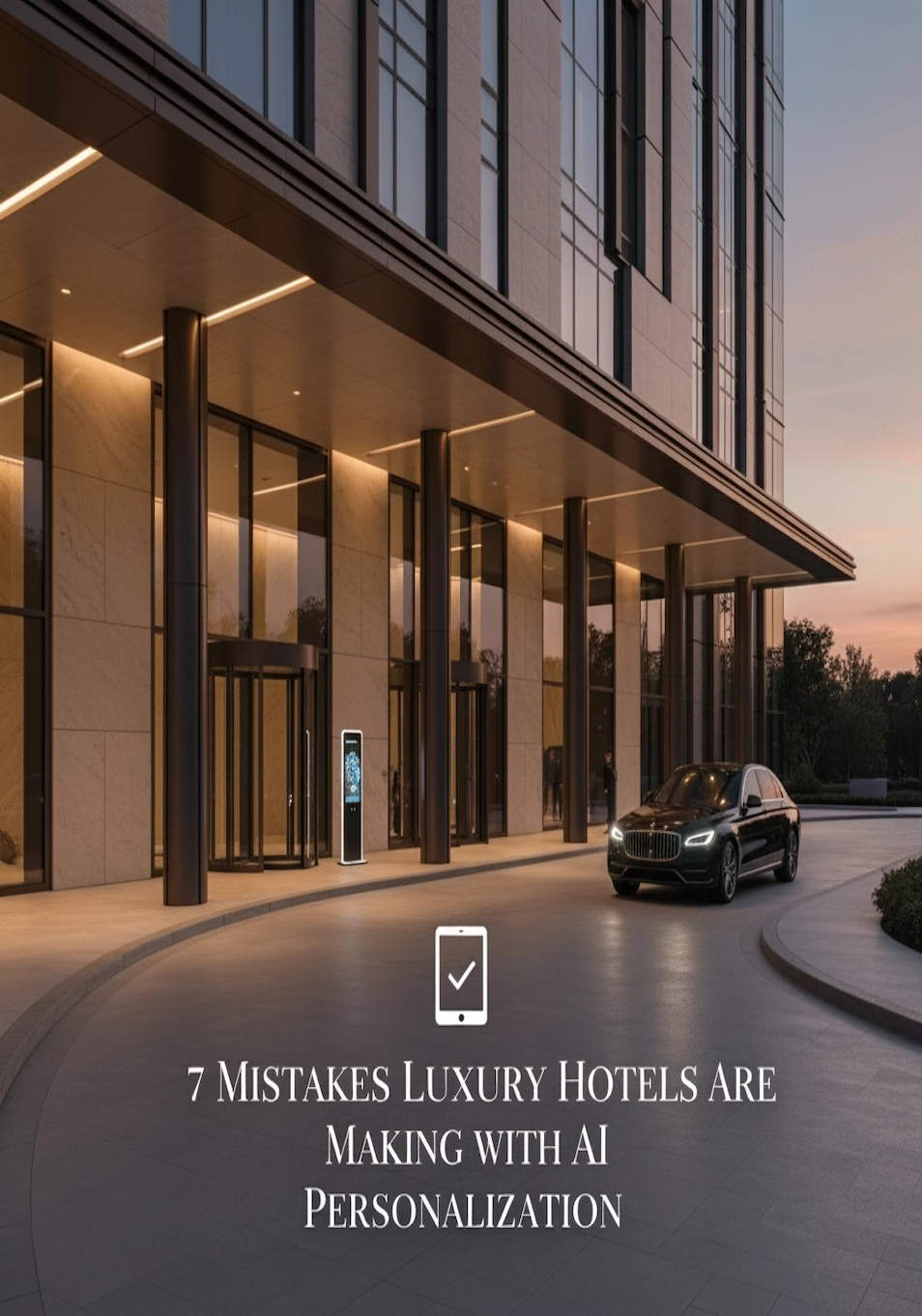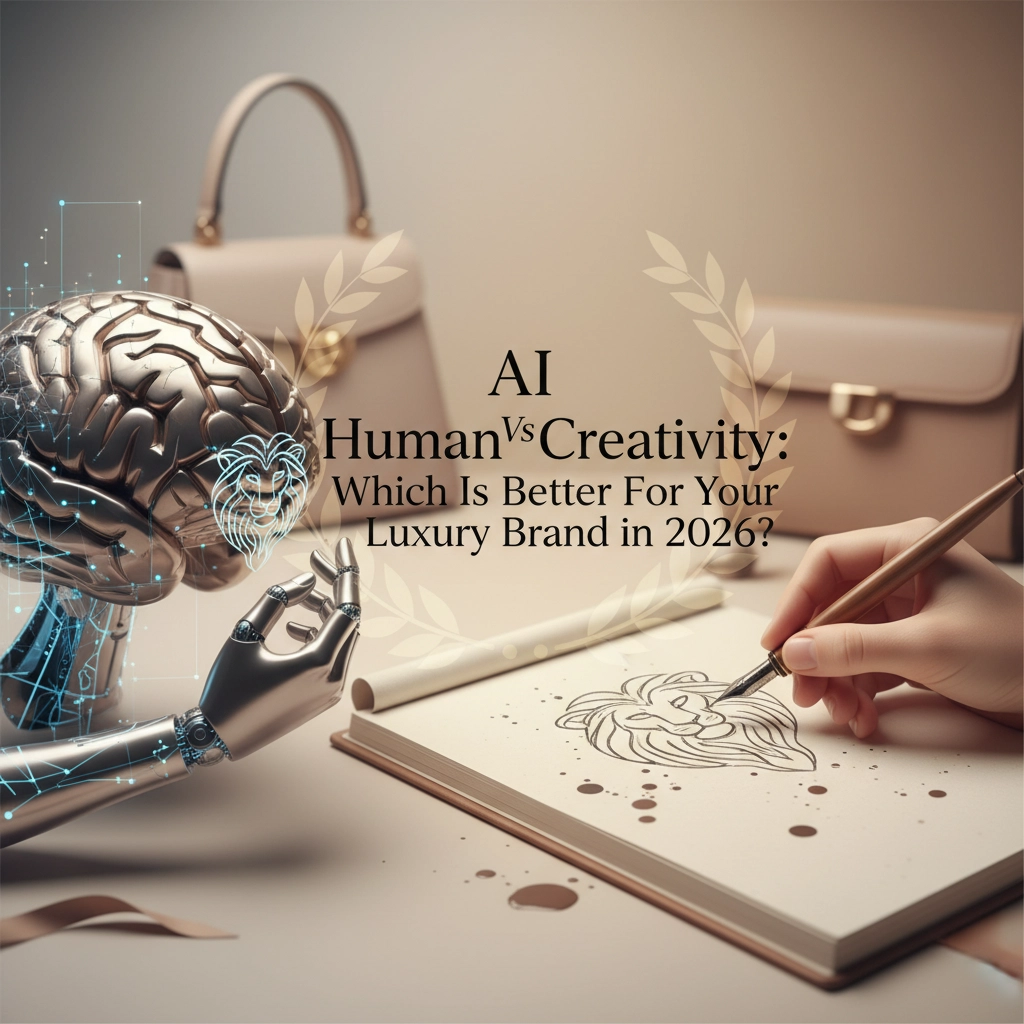
Picture this: You’re running a luxury hotel brand, and your marketing team just spent three months crafting the perfect campaign for your new property launch. Meanwhile, your competitor used AI to analyze guest preferences, predict trending destinations, and create personalized marketing assets in just two weeks. Who wins?
Here’s the thing: this isn’t actually the right question. The most successful luxury hotel brands in 2026 aren’t choosing between AI and human creativity. They’re mastering the art of combining both.
Why AI Alone Isn’t Enough for Luxury Hotels
AI excels at processing massive amounts of data faster than any human team could dream of. For luxury hotels, this translates into some pretty impressive capabilities. AI can analyze guest booking patterns, social media behavior, and market trends to predict demand with 50% fewer forecasting errors. That means better inventory management and up to 50% reduction in unsold premium suites.
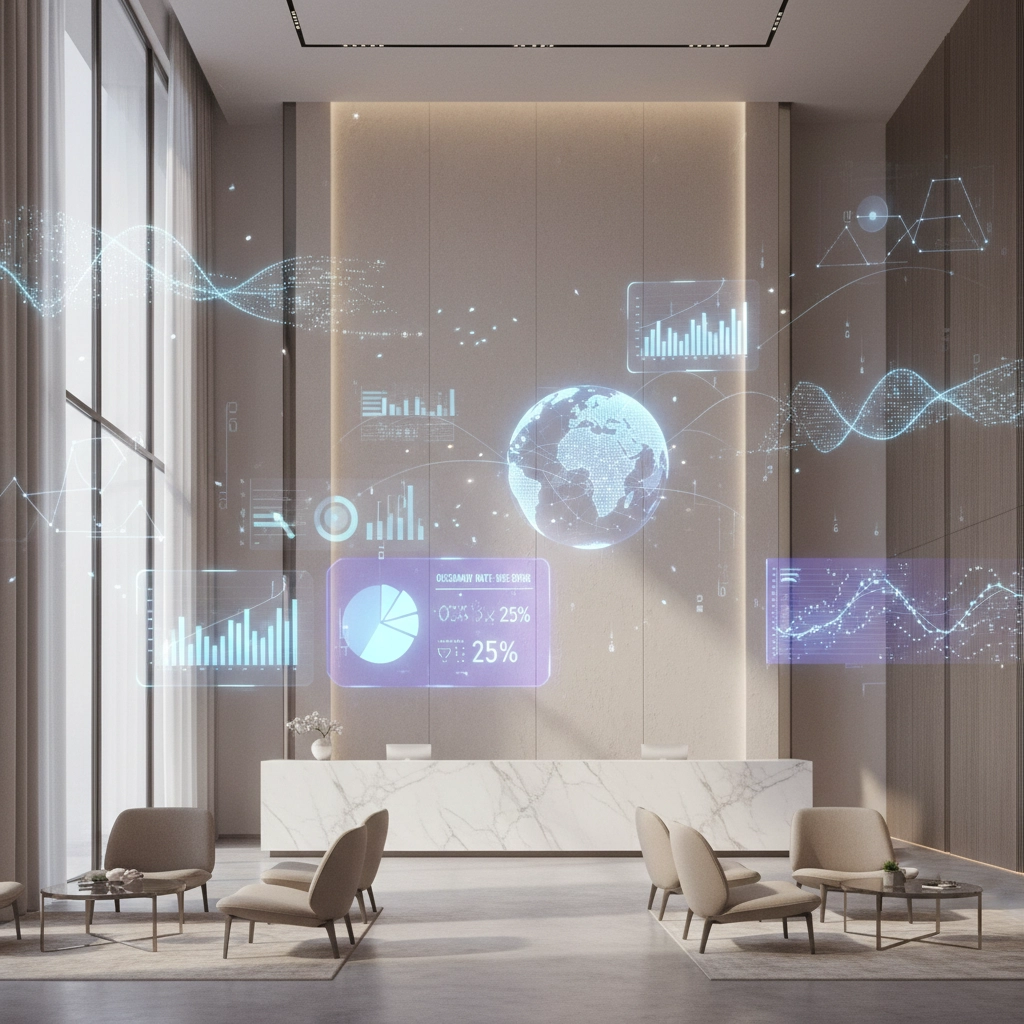
But here’s where it gets interesting for luxury brands specifically. AI-powered personalization can customize everything from email marketing to in-room experiences based on individual guest preferences. Imagine automatically adjusting room temperature, lighting, and even pillow firmness based on previous stays, or crafting marketing messages that speak directly to a guest’s travel style and preferences.
The cost savings are significant too. Traditional branding and marketing campaigns that used to cost $50,000 and take months can now be produced in weeks for a fraction of the price. AI tools can generate initial concepts, create variations, and even A/B test different approaches automatically.
However, there’s a catch. AI-generated content tends toward the generic and bland: exactly what luxury consumers are trying to avoid. When every hotel brand uses similar AI tools with similar data inputs, you end up with homogenized marketing that lacks the distinctive character luxury guests expect.
Where Human Creativity Becomes Non-Negotiable
This is where human creativity becomes absolutely essential for luxury hotel brands. Your guests aren’t just booking a room: they’re investing in an experience, a story, and often a piece of heritage that connects them to something meaningful.
Human creatives understand the nuances of luxury hospitality in ways AI simply cannot. They know that the irregular patina on a centuries-old hotel facade tells a story that perfectly manufactured perfection cannot. They understand how to craft narratives that transform a weekend getaway into a life-changing experience.

Consider how Four Seasons builds their brand narrative around genuine human service stories, or how Aman creates mystique through carefully curated cultural experiences. These aren’t data points: they’re emotional connections that require human insight, cultural understanding, and creative vision.
Human creativity also brings the bold, original thinking that helps luxury brands stand out. While AI tends to optimize toward safe, data-supported choices, human creatives can make the counterintuitive decisions that create truly memorable campaigns and experiences.
The Hybrid Approach: How Smart Luxury Brands Do It
The winning strategy for 2026 involves using AI as an amplification tool for human creativity, not a replacement. Here’s how the smartest luxury hotel brands are making this work:
Data-Informed Creative Direction: Creative teams use AI-generated insights about guest preferences, emerging travel trends, and market opportunities as the foundation for their campaigns. Instead of relying purely on intuition, they have concrete data to inform their creative choices while maintaining the artistic vision that sets luxury brands apart.
Accelerated Production Cycles: AI handles the repetitive tasks: generating initial concepts, creating asset variations, resizing images for different platforms, and even writing first-draft copy. This frees human creatives to focus on strategy, storytelling, and the refinement that turns good ideas into exceptional experiences.
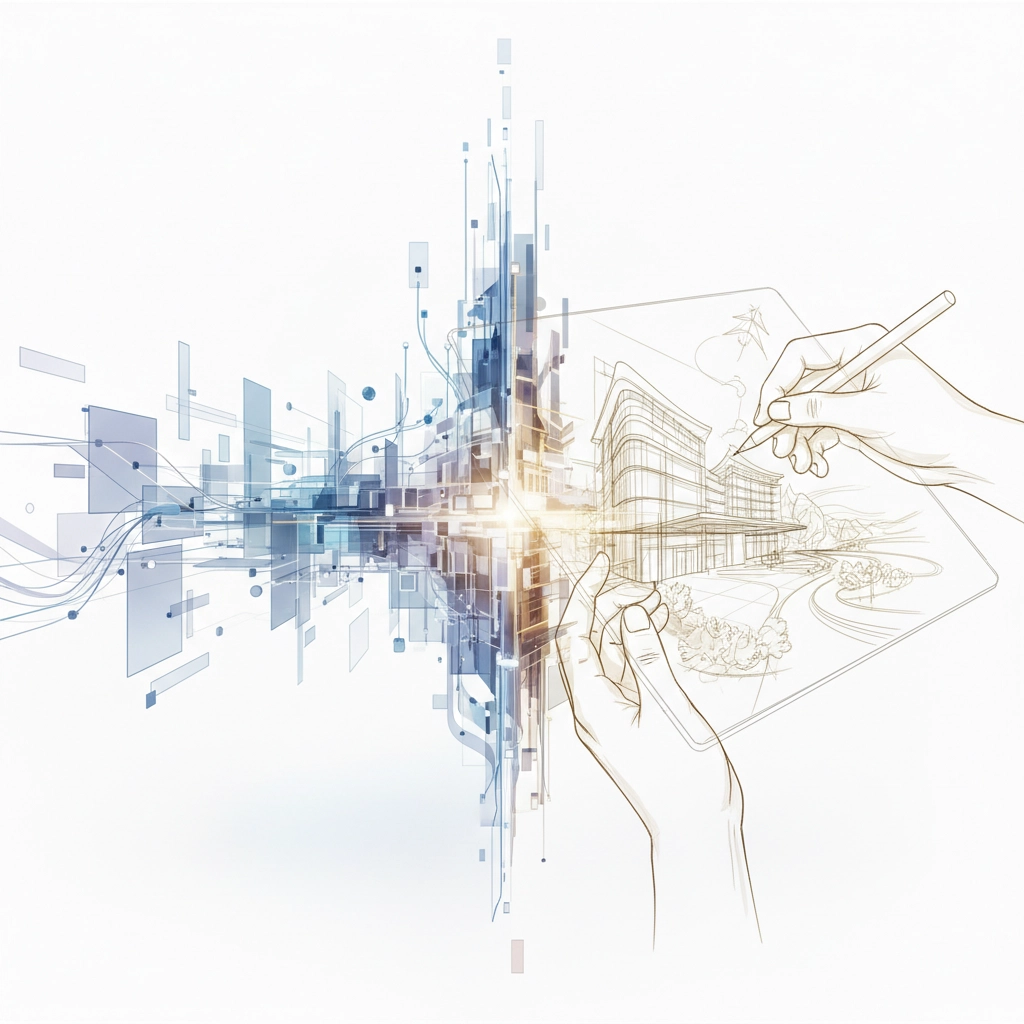
Personalized Luxury at Scale: AI powers the backend personalization: analyzing guest data, predicting preferences, and customizing touchpoints: while humans craft the overarching experience narrative and ensure every interaction reflects the brand’s unique character.
What This Looks Like in Practice
Let’s say you’re launching a new luxury eco-resort. Here’s how the hybrid approach might work:
AI analyzes social media trends and booking data to identify that your target market is increasingly interested in “regenerative travel” experiences. It processes thousands of guest reviews to understand what specific amenities and services resonate most with eco-conscious luxury travelers.
Human creatives use these insights to develop a campaign narrative around “Luxury That Gives Back”: positioning your resort not just as a beautiful destination, but as a transformative experience that leaves both guests and the local ecosystem better than before.
AI then helps optimize the rollout: determining which messaging works best for different guest segments, predicting optimal booking windows, and even customizing the website experience for different visitors. But the core story, the emotional resonance, and the brand positioning remain distinctly human.
Current Trends Shaping 2026
Looking ahead, several trends are reshaping how luxury hotel brands approach the AI-human creativity balance:
Hyper-Personalization Becomes Expected: Guests in 2026 won’t just appreciate personalized experiences: they’ll expect them. AI makes this level of customization economically viable, while human creativity ensures it feels genuine rather than algorithmic.
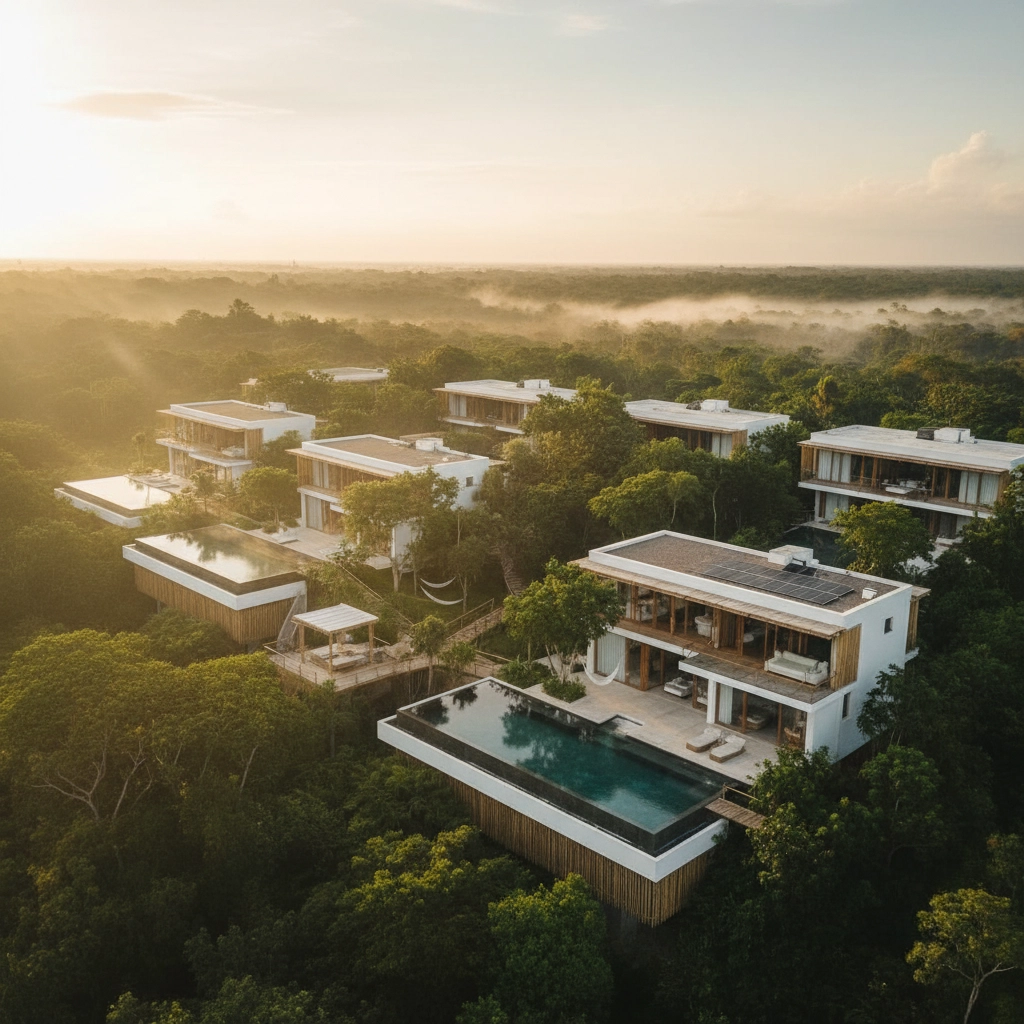
Sustainability Through Smart Planning: AI’s ability to optimize inventory, predict demand, and reduce waste aligns perfectly with luxury travelers’ growing environmental consciousness. Human creativity translates these efficiencies into compelling brand narratives about responsibility and stewardship.
Real-Time Experience Adaptation: Advanced AI can now adjust marketing messages, pricing strategies, and even in-hotel experiences in real-time based on guest behavior and external factors. Human oversight ensures these adaptations enhance rather than compromise the luxury experience.
How Dion Digital Agency Bridges the Gap
At Dion Digital Agency, we’ve seen firsthand how the most successful luxury hotel brands navigate this balance. Our approach focuses on using AI to amplify human creativity, not replace it.
We start by leveraging AI tools to analyze your guest data, identify emerging market opportunities, and generate initial creative concepts. But every strategy session involves human strategists who understand luxury hospitality, every campaign includes creative directors who know how to tell compelling stories, and every execution is refined by designers who understand the visual language of luxury.
The Fix: Invest in enterprise-grade cybersecurity infrastructure before expanding AI capabilities. Conduct regular security audits, implement end-to-end encryption for all guest data, and establish clear protocols for incident response.
Ensure compliance with international data protection regulations like GDPR, and maintain transparent communication with guests about your security measures. When guests see you take their security seriously, they trust you with more valuable information.
Our hybrid methodology has helped luxury hotel brands reduce their marketing production time by 60% while improving guest engagement rates by up to 40%. The secret isn’t choosing between AI and human creativity: it’s orchestrating them to work together.
Making the Right Choice for Your Brand
So, which is better for your luxury hotel brand in 2026? The answer depends on how you use them together. AI provides the insights, efficiency, and personalization capabilities that modern luxury travelers expect. Human creativity provides the storytelling, emotional resonance, and distinctive character that keeps your brand from becoming just another algorithmic experience.
The luxury hotel brands that thrive in 2026 will be those that master this balance: using data to inform their creative decisions, AI to accelerate their execution, and human insight to ensure every guest interaction feels genuinely luxurious.
The future of luxury hospitality marketing isn’t about replacing human creativity with AI: it’s about creating a new kind of creative intelligence that combines the best of both worlds. Your guests deserve nothing less.
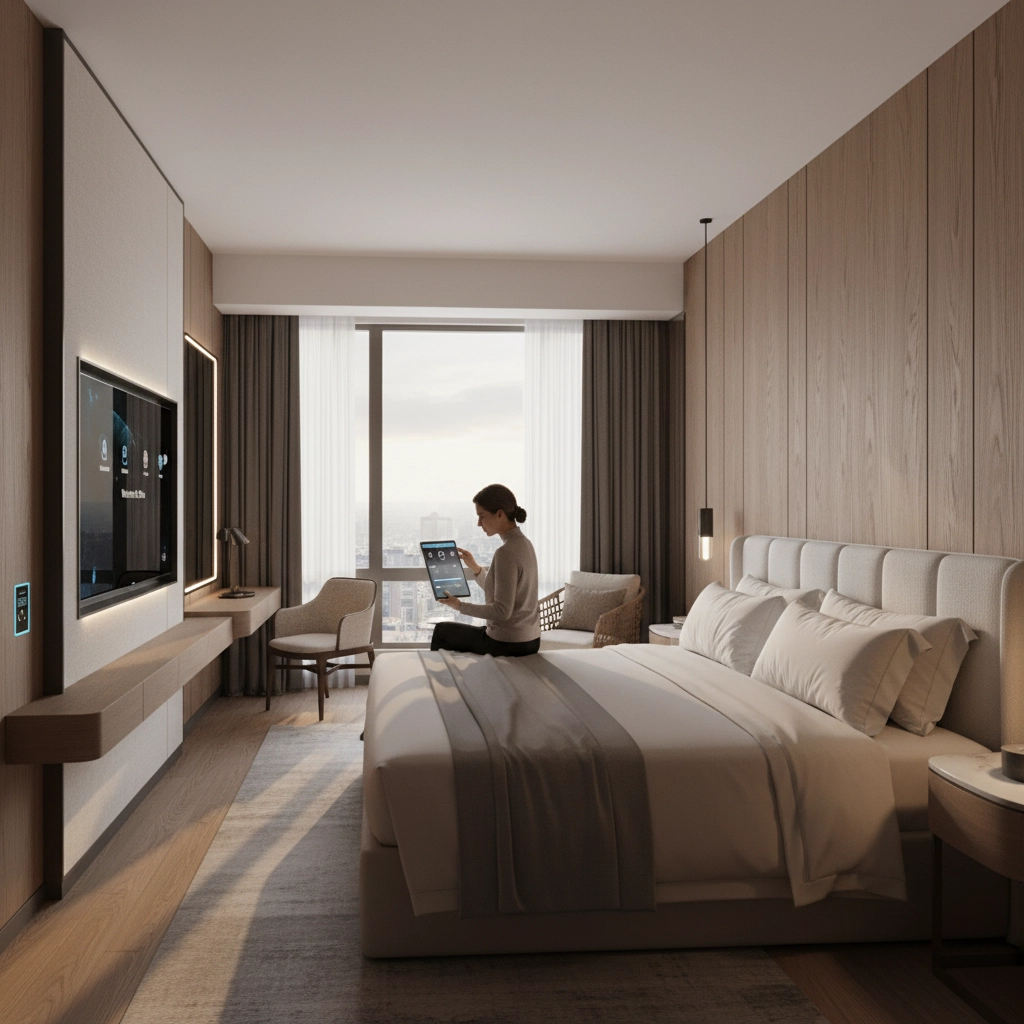
“In the world of luxury, true brilliance lies where human imagination meets the precision of AI. The future isn’t about choosing between creativity and technology—it’s about discovering how seamlessly they can elevate your brand together.”

